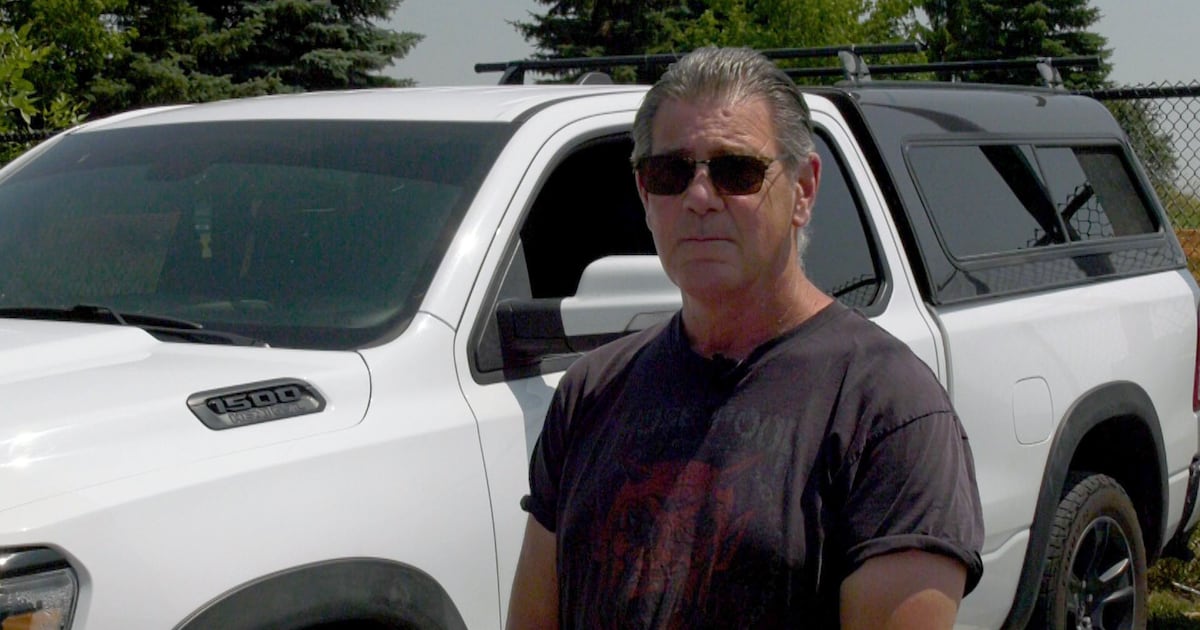Jon Woodward reports on an Ontario man who was a victim of VIN fraud, resulting in him being pulled over numerous times by police.
Steve Fowler is a truck mechanic and likes to stay on the right side of the law. But one day, the police started to take an interest in him.
Starting around December 2023, officers from police forces around Toronto, from York Region to South Simcoe, started to pull him over, telling him there was a problem with the licence plate on his 2020 Ram truck.
Each time, he showed them the documentation it was his vehicle, and he was let go. Each time the officers were friendly and professional. And over about a year and a half, Fowler says it happened between 20 to 30 times.
“It was almost once every other week, for sure,” Fowler told CTV News in an interview. “One time, I got pulled over on my way home from work. And when the officer came up to the window, he recognized me. He said, ‘Oh, hey, how’s it going? I didn’t realize it was you.’”
Fowler didn’t know it yet, but he had been one of the victims in an elaborate fraud that targets the vehicle identification numbers, or VINs, of the vehicles belonging to unsuspecting drivers.
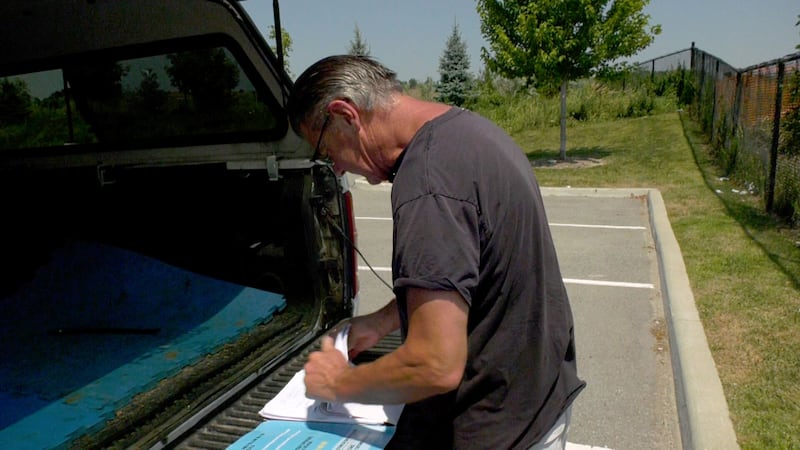 Steve Fowler Steve Fowler says he was caught up in a web of bureaucracy after being the victim of VIN fraud.
Steve Fowler Steve Fowler says he was caught up in a web of bureaucracy after being the victim of VIN fraud.
VIN fraud is often part of a scheme to disguise stolen cars as legitimate vehicles so they can be sold in Canada. To do that, thieves need to find a plausible number they can attach to a stolen car so it appears to be a different, legitimate vehicle. So they take one from a car that matches its make and model.
And it’s a scam that’s on the rise as theft rings find it more difficult to export vehicles abroad, said Dan Service, of VIN Verification Inc, which offers a program to screen vehicles and trailers to make sure their VINs are legitimate.
“VIN fraud has proliferated so much in the past few years, it’s overwhelmed many organizations’ capacity to address it,” he said.
Service pointed to numbers from vehicle documentation provider Carfax that suggests there are 127,000 cars with duplicate VINs on Ontario roads alone.
Each time Fowler was pulled over, police suggested he visit a Service Ontario to fix the problem, which was that his plates appeared to be not attached to his vehicle.
But each time Fowler visited a Service Ontario, staff there wouldn’t help him, he says. They told him to go back to the police.
“I went back and forth a few times, like a ping pong ball,” he said.
So he started to dig. And with some freedom of information requests he learned that the VIN number for his truck had turned up on a vehicle that was seized by police in London, Ontario.
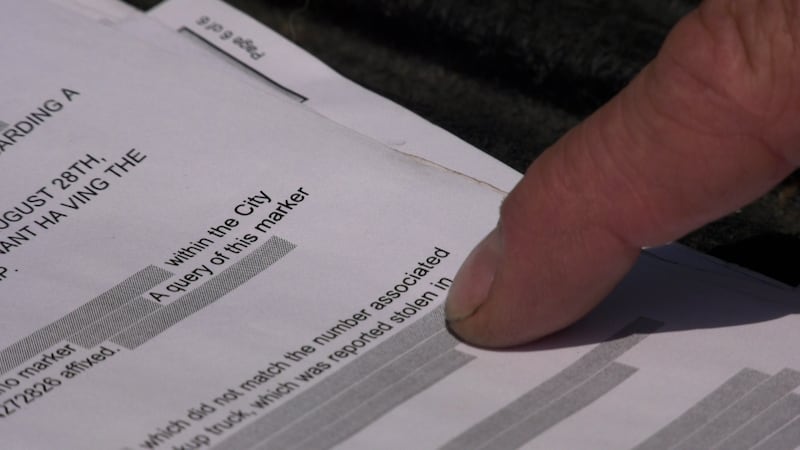 VIN scam Fowler says he didn’t understand what was happening to him until he filed a freedom of information request.
VIN scam Fowler says he didn’t understand what was happening to him until he filed a freedom of information request.
It appears his vehicle was flagged as having a duplicate VIN in a Ministry of Transportation database. And that’s why, whenever an officer passed him on the road, they pulled him over.
Fowler started making more phone calls, to Service Ontario to police officers to the Ministry of Transportation.
Finally a government worker told him someone at a Service Ontario in Pickering, east of Toronto, had transferred the ownership of his truck from him to someone else.
“The permit was replaced using a third-party authorization,” Fowler said. “Someone pretending to be me never had to show up. It was all done through computers and e-mails,” he said.
That realization didn’t stop him from being pulled over. But it suggested a route to sort this out: was his vehicle suspected as being stolen too? And if so, how could he prove that his truck was the rightful owner of that VIN number?
That’s when CTV News started contacting the police forces involved, as well as the ministry, and asking questions about how to get out of the impasse.
One issue: because the London Police Service had discovered the duplicate VIN, local police forces were deferring to them. And London Police couldn’t inspect the vehicle because Fowler was driving in South Simcoe and York Region.
But it seems that neither Service Ontario nor the Ministry of Transportation would engage with Fowler without proof his vehicle wasn’t stolen.
“This is an unusual matter that requires the assistance of the individual, Ministry of Transportation, and the Insurance Bureau of Canada,” said South Simcoe Police in a statement.
In mid-August, South Simcoe Police decided to act and break the impasse by calling Fowler and doing an inspection of his vehicle, which passed. That was enough to get an update to the Ministry of Transportation database, and get him new plates.
He’s happy he won’t get pulled over for this reason – and can’t believe it took a year and a half before questions from CTV News got things moving.
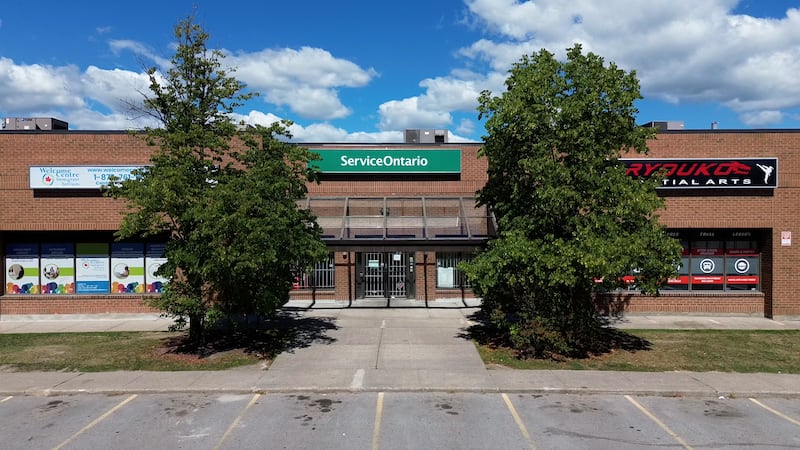 Service Ontario A Service Ontario centre in Pickering is pictured.
Service Ontario A Service Ontario centre in Pickering is pictured.
But given the scale of VIN fraud, Fowler’s case is a sign that Canadian agencies need to do more to make sure they’re on top of it when innocent people get wrapped up in these scams, said VIN Verification Inc’s Dan Service.
“This is a big enough problem and government is in a critical position to do something about it,” Service said.
Ontario moved to restrict some types of re-vinning last fall, meaning the third-party authorization route would be less likely today.
But there are still unanswered questions about who precisely at the Pickering Service Ontario altered the records, whether they were part of a theft ring, or simply duped by savvy criminals.
There are several examples of Service Ontario workers being charged with helping thieves, including Tonisha Baird in Brampton, Ontario, earlier this year.
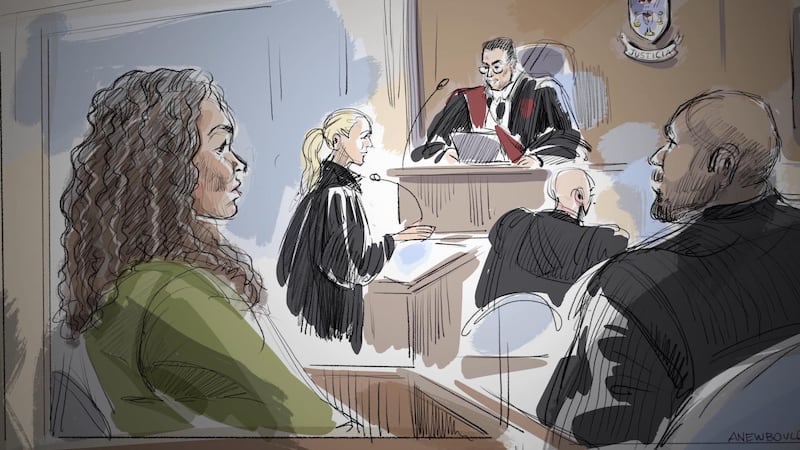 Tonisha Baird and Eric Johnson, court sketch, W5 Tonisha Baird, left, and Eric Johnson, right, listen to their sentence read by Justice Agarwal in Brampton Superior Court in May 2025. (Court sketch by Alexandra Newbould)
Tonisha Baird and Eric Johnson, court sketch, W5 Tonisha Baird, left, and Eric Johnson, right, listen to their sentence read by Justice Agarwal in Brampton Superior Court in May 2025. (Court sketch by Alexandra Newbould)
The Pickering Service Ontario is a separate agency, and it is privately owned and operated, and the numbered company didn’t return messages from CTV News. Staff at the office refused to deal with CTV News and even refused to provide a contact number for us to call.
The Ministry responsible for Service Ontario, Public and Business and Service Delivery and Procurement, wouldn’t answer direct questions about it, nor would they say they are investigating.
“Service Ontario is in regular communication with all of its service providers who are required to comply with the government’s policies and procedures,” said the ministry in a statement.

